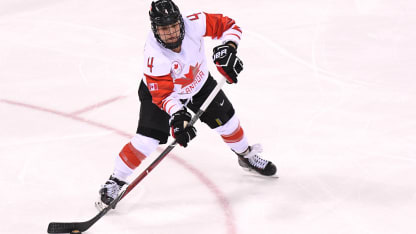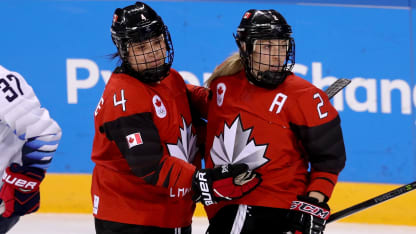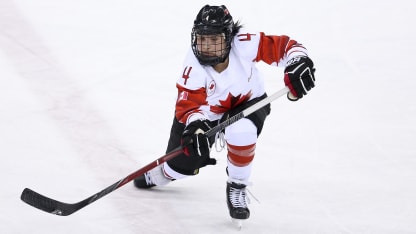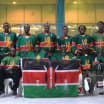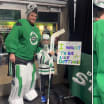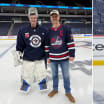Eventually, I started playing organized hockey. I begged my dad to put me in hockey until he finally gave in and let me play. Because of a lack of players, my sister eventually started playing as well; she found a love for playing goalie. Living in isolated Mallard, the closest minor hockey association was about an hour away in Winnipegosis, Manitoba. Mom or dad would drive us back and forth from Winnipegosis twice a week. If they couldn't make the trip, one of my uncles stepped in to make sure we never missed a game. Hockey was a family affair.
One thing you learn while growing up in an indigenous home is values. An indigenous home means being raised by not just by your parents, but by your entire family -- uncles, aunts, grandmothers and grandfathers. Our first cousins weren't really cousins, they were our brothers and sisters. Aunts and uncles treated us like their own kids. Every one of them had a part in making me the woman I am today, and instilling in me the values I believe in. They taught me to be humble and to show humility in everything I do. They taught me the value of hard work. Hard work shows discipline, which is a valuable skill to possess. When I was growing up, working hard showed my parents that we wanted to be doing whatever we were doing, wherever we were doing it. They also taught me about taking care of your family. Part of having a family means taking care of your relations near and far, making sure they have a roof over their heads and food on their table, and ensuring that whoever is in your home is comfortable. They taught me always to lend a helping hand, with no questions asked.
As we grew older, practices became more frequent. It was nothing to have practice four times a week -- two practices in Gilbert Plains (which was almost two hours away from Mallard) and two practices in Winnipegosis. I started to improve, which got me playing on a triple A summer hockey team with my sister (Tara always seemed to have a knack for being a successful goalie). Playing summer hockey was also a turning point for me, because it was then that I experienced an event that would change my sports life forever.
We were playing in our first tournament, in Winnipeg. I was excited to have a chance to play in this tournament, but that's when an unexpected event occurred. I got into a shoving match with a girl in the corner -- nothing out of the normal for a hockey game. However, as we were skating back up the ice, she turned to me and said, "Get off me, you dirty Indian!"
I was completely shook. It was the first time I had ever encountered racism on the ice. I remember feeling every negative emotion -- anger, embarrassment, sadness. I cried because, well, I am a crier. I also didn't really know how to handle it.
As the game progressed, my dad (who was one of my coaches on the team) noticed something was off. He asked me what was wrong. I wasn't my usual self and I had some tears. At that point, I didn't even want to repeat what that girl had said to me, but finally I finally found the courage to tell him. The advice he gave me in response was so simple, but it still sticks with me today.
He told me, "Beat them on the ice." In other words: Be the better person, don't give in to those taunts, be so focused on yourself and your own success so that when they say things like that to you, it's a knock on them, not you.
I have carried that speech with me ever since. I've been called every name in the book since then, but I never let it get to me. That one simple piece of advice from my dad helped me turn that negative experience into a positive one.
